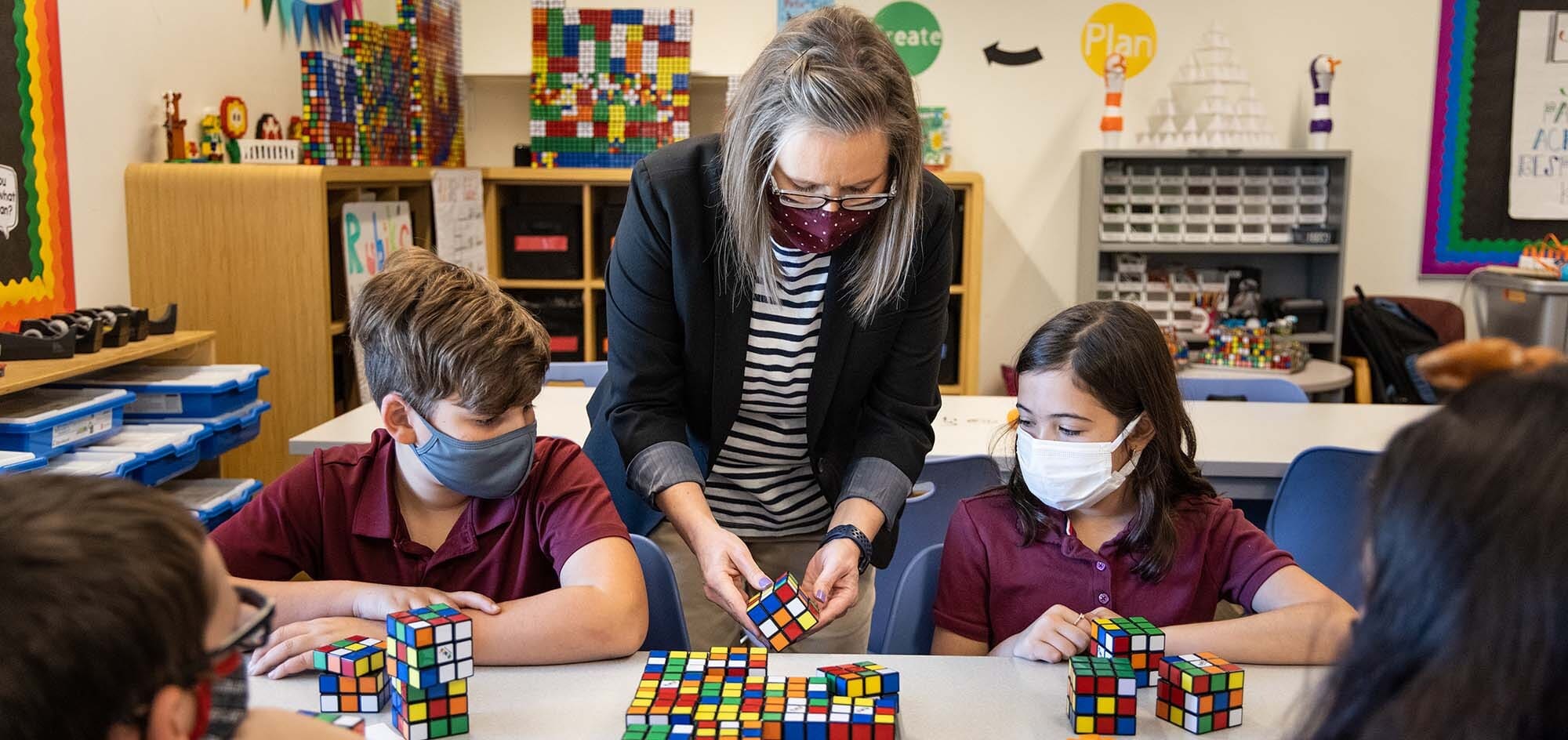The COVID-19 pandemic affected nearly everything about education. And while it’s easy to focus on the negatives, we’d like to acknowledge something different—the silver lining. The pandemic offered a disruption education may not have been ready for, but in many ways needed. It ushered in a fundamental shift in thinking, making way for innovation, better relationships, and a renewed appreciation for the valuable services schools provide within their communities. During this season of gratitude, we’d like to give thanks for these lessons learned and examine how educational leaders can use this information to help schools emerge stronger in the post-pandemic world.
Lesson #1: Innovation in education is possible. And it’s more necessary than ever.
March of 2020 was a pivotal moment in education. The sudden lockdown experienced by schools across the country forced creative solutions to the forefront. Districts had to figure out how to deliver education at scale virtually, and teachers had to figure out how to manage an online classroom in a matter of weeks. Through this trial and error, we all learned innovation in education may be difficult, but it’s possible.
This rapid introduction of data, technology, and new ways of thinking about pedagogy have transformed what education looks like today. We can now identify learning gaps more efficiently to personalize education for every student. Learning is no longer bound by a classroom or time zone—with today’s tools, students can take their education wherever they are. And now, there’s a whole new market for education technology and innovation that never existed before.
Looking toward the future, educational leaders need to go beyond having an open mind towards innovation—they need to set up processes to foster it. This will position them to continue offering quality education in the future. “We need to start talking about what solid online, virtual, and hybrid learning looks like so we can build educational programs that are more elastic, flexible, and resistant,” says Amy McGrath, Deputy Vice President of Arizona State University. “There will undoubtedly be more crises that hit us and we all need to be prepared for our kids.” Moving forward, the goal is to help students adapt and prepare for the changing future ahead. And that begins with developing the skills they need to achieve success for themselves and their communities.
Lesson #2: Building strong relationships has become a priority.
The sudden loss of in-person learning highlighted how impactful relationships are to education. As students navigated an entirely new way to learn, parents had to determine how to juggle their children’s learning alongside their own responsibilities. Teachers had to act quickly, working with students and their families to find ways to create a healthy and positive environment for students to thrive, despite the distance. But before they could do any of that, teachers had to start by building relationships.
“Teachers have the power to point students in a direction that can change their life trajectory—by caring, by keeping high expectations, and by making learning personalized and contextual for students,” says McGrath. Moving forward, school leaders should consider taking an active role in helping their staff develop the skills they need to build these kinds of relationships, such as identifying nonverbal cues from students, helping students feel validated and heard, or building rapport with students and families by asking about their lives outside of school.
In addition, leaders can consider bringing in outside support to enhance the student journey in a holistic way. For instance, ASU Prep Digital students are each assigned a Learning Success Coach (LSC) when they enroll. The LSCs work closely with teachers to monitor student progress, acting as a school counselor to help students set goals while providing college and career advice, emotional support, and academic coaching. “There is an incredible depth of opportunity that is revealed when a learner trusts their teachers,” says McGrath.
Lesson #3: Schools play a critical and invaluable role in communities everywhere.
Schools are an integral part of our communities, woven into the fabric of many family’s everyday lives. And our communities may not have understood this impact until it was suddenly taken away. The summer of 2020 was marked by a sudden outpouring of appreciation for schools and teachers, lauding the essential role of education and mobilizing a new generation of advocates. “Schools are more than academic,” says McGrath. “They are a social service to the community providing childcare, food, social-emotional learning, and much more that families depend on.”
Now that many schools have reopened, school leaders can capitalize on this support by finding new stakeholders and advocates to enhance the future success of students. New partnerships can be leveraged to enhance your school’s learning technology, expand access to computers and the internet, provide learning continuity, or simply stay connected to the local community. McGrath has some advice for leaders responsible for choosing the next direction for their schools: “Keep students at the center,” she says. “That way you know the culture is driving in the right direction and your teachers will find joy.”
Partner with ASU Prep Digital
ASU Prep Digital is an accredited online K-12 school providing districts with single online courses, full-time virtual programs, innovative learning recovery solutions, and customized professional development options. For information about partnering with ASU Prep Digital, please email partnership@asuprep.org.

